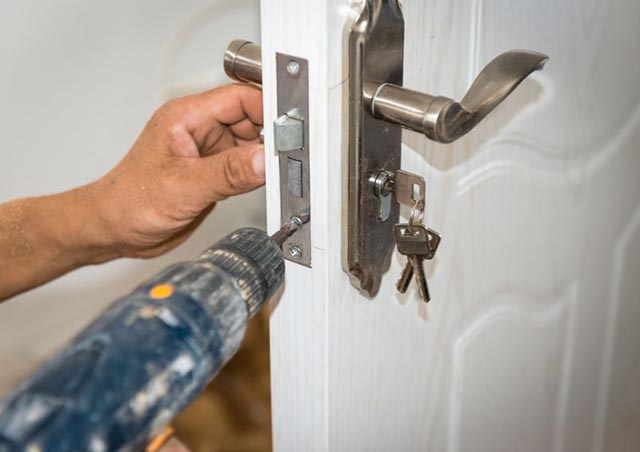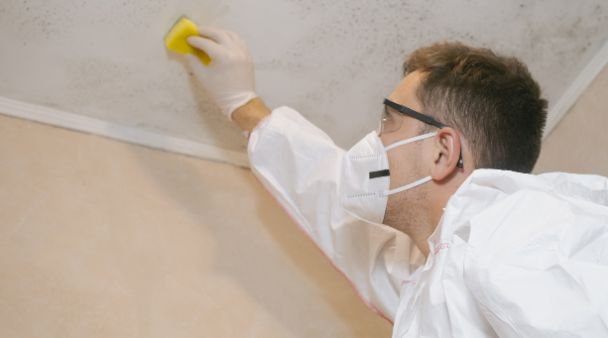
- 1. Advertise Your Property on Multiple Platforms
- 2. Replace or Repair Non-Functional Items
- 3. Conduct a Thorough Walkthrough and Checklist Review
- 4. Hire Professional Cleaners
- 5. Rekey and Install New Locks
- 6. Conduct Property Upgrades
- 7. Remove Mold and Mildew
- 8. Test HVAC Systems for Functionality
- Bottom Line
Renting out a property demands more than just placing a "For Rent" sign outside the door. It requires careful planning, attention to detail, and a proactive approach to ensure your property appeals to potential tenants. The first impression your property makes can significantly influence the type of tenants you attract and how quickly you can find suitable renters.
This guide aims to arm you with essential tips and strategies to prepare your rental property effectively. Whether you are an experienced landlord or new to the rental market, following these steps will help you present your property in the best possible light, increase its desirability, and ensure a smooth rental process.
From thorough cleaning and necessary repairs to legal considerations and marketing strategies, these tips cover all critical aspects of getting your property ready for rent.
1. Advertise Your Property on Multiple Platforms
Time is of the essence when renting out your property. The faster you can list it, the quicker you can start showing it to potential tenants. Utilize various online and offline platforms to spread the word about your available unit.

To maximize your listing, post it on popular rental sites and social media platforms. Offline, inform your network, including friends, family, and current tenants, who might know someone looking for a new place. Use high-quality photos that highlight your property's best features and write compelling descriptions that capture the attention of potential renters.
2. Replace or Repair Non-Functional Items
A vacant property offers an excellent opportunity to assess and address maintenance issues thoroughly. This is the perfect time to conduct a detailed inspection and take care of any repairs or replacements needed to maintain the property's value and appeal.
Focus on key areas such as appliances, ensuring all kitchen and laundry appliances are in working order to avoid inconveniences for future tenants. Pay attention to lighting by replacing burnt-out light bulbs and fixing any faulty lighting fixtures, as good lighting can significantly enhance the property's ambiance.
Safety is paramount, so test smoke detectors and fire alarms to ensure they are functioning correctly. You should also handle general maintenance tasks by repairing or replacing door knobs, windows, blinds, and curtains, which can often be overlooked but contribute to the overall comfort and security of the home.
3. Conduct a Thorough Walkthrough and Checklist Review
Before the next tenant moves in, perform a detailed property walkthrough using a comprehensive checklist to ensure a smooth transition. Document the property's current condition, comparing it to the previous move-in checklist to identify wear and tear or damages.

Create a list of necessary repairs and ensure each task is completed to a high standard, keeping receipts for transparency. Address any cosmetic issues, such as painting or cleaning, to enhance the property's appeal. This process helps maintain the property's standards and reassures the incoming tenant of a well-managed home, fostering a positive rental experience from the outset.
4. Hire Professional Cleaners
While you can handle basic cleaning yourself, hiring professional cleaners ensures the property is thoroughly cleaned and ready for new tenants. Professional cleaners have the right tools and expertise to reach challenging areas and leave the rental fresh and welcoming.
Their comprehensive cleaning checklist includes scrubbing the bathroom's shower, sink, tub, toilet, mirrors, and floors. In the kitchen, they meticulously clean counters, stove, microwave, refrigerator, and storage spaces. They also attend to other areas by washing walls, ceilings, windows, garage space, basement, laundry area, closets, and moldings.
5. Rekey and Install New Locks
For the safety and security of new tenants, it's essential to change the locks and rekey all doors, ensuring that previous tenants no longer have access to the property. This practice provides peace of mind and enhances the property's security. Start by installing new locks on all main entry points.

You should also consider upgrading to electronic locks for easier management and improved security. Electronic locks offer the advantage of keyless entry and can be reprogrammed easily for new tenants. Implementing these security measures not only protects your property but also builds trust with new tenants, showing that their safety is a top priority.
6. Conduct Property Upgrades
A vacant period presents an ideal opportunity for upgrades and renovations to boost the property's appeal and value. Planning and budgeting for these improvements ensures they are completed before the new tenant moves in.
Potential upgrades include refreshing the interior by repainting walls with a new coat of paint, enhancing the property's curb appeal with attractive landscaping, and improving functionality with additional storage solutions.
Consider expanding rooms or altering layouts to create a more spacious feel. Installing soundproofing materials enhances tenant comfort by reducing noise transfer between units. Addressing any roof issues with necessary repairs prevents future damage and ensures the property remains in top condition.
7. Remove Mold and Mildew
Mold and mildew pose serious risks to both property condition and tenant health, making professional remediation essential before showing a property to new tenants. Start with a thorough inspection of high-moisture areas such as bathrooms, kitchens, basements, and laundry rooms to identify any mold issues.

Hiring specialists for mold removal is crucial to ensure effective remediation and prevent future growth. Implementing preventive measures like maintaining proper ventilation and promptly fixing any leaks helps mitigate the risk of mold returning.
By addressing mold issues proactively, property managers can ensure a safe and healthy living environment for tenants while safeguarding the property's integrity and attractiveness.
8. Test HVAC Systems for Functionality
Heating, ventilation, and cooling (HVAC) systems play a pivotal role in ensuring tenant comfort and satisfaction. Regular inspections and maintenance are essential to keep these systems functioning optimally.
Start with replacing air filters regularly to maintain air quality and system efficiency. Inspect for and promptly fix any leaks to prevent water damage and ensure energy efficiency. Address broken pipes to prevent plumbing issues that could disrupt tenant comfort.
Regularly clear drainage systems to prevent clogs that could lead to water damage or mold growth. Check and adjust water pressure as needed to maintain consistent performance. Schedule professional evaluations of electrical and plumbing systems to detect potential issues early.
Bottom Line
Preparing your property for rent involves thorough planning and attention to detail. Following these tips ensures your rental unit is attractive, functional, and ready to impress potential tenants. A well-maintained property reduces vacancy periods and helps build a positive reputation as a landlord.
Contact NFI Property Management Solutions today to learn how we can help you streamline your rental process and maximize your property's potential.